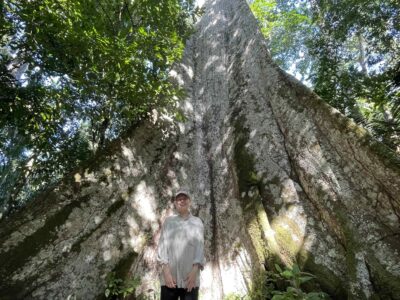
The White House recently released the president’s fiscal year 2020 budget proposal with plans to increase funding NASA by 12 percent, totaling $25.2 billion. According to NASA administrator Jim Bridenstine, President Trump’s move makes for “one of the strongest budgets in NASA history.”
This stands in sharp contrast to the proposal’s diminutive allocation of $6.7 billion for the Environmental Protection Agency (EPA), representing a funding decrease of 26 percent. In his budget, Trump calls for the elimination of 50 so-called “wasteful” programs from the EPA’s agenda, including efforts that clean up toxic Superfund sites. Not unexpectedly, the budget proposal includes absolutely no mention of “climate change”—two words that were likewise never uttered in the president’s recent State of the Union Address.
If approved by Congress, the new funds for NASA will support the organization’s ambitious Project Artemis, which plans to send the “first woman and next man” to the moon in 2024 in preparation for landing on Mars in the future. These missions could theoretically pave the way for human colonies on Mars, as multi-billionaires Elon Musk and Jeff Bezos famously aspire to establish with their respective space exploration companies, SpaceX and Blue Origin.
But what about the rest of us who don’t have plans (or enough money) to live in a sci-fi-esque biosphere in space? And what about all of the nonhuman species here on Earth? One study has estimated that there are 1 to 6 billion species currently inhabiting our planet — how will these beings fare in the midst of Earth’s sixth mass extinction, which is only just beginning? These questions are surely beyond Trump, a vehement climate change denialist who has famously weakened protections for species under the Endangered Species Act.
I am all for space travel. However, I believe that our nation’s goals in space ought to align with our goals here on Earth. Preserving and protecting our planet is vital for humanity as we face an unprecedented human-altered climate. While further exploration in space is both necessary and inevitable, we cannot abandon our only home in the meantime.
Sophie Capshaw-Mack is a graduate student in the MPA in Environmental Science and Policy program. This post is part of an independent study entitled, “Art, Ethics, and Climate Change” led by sustainability ethics lecturer Adela Gondek, in which Capshaw-Mack creates art and accompanying written pieces about the present environmental crisis we face.
If you’re interested in learning more about the MPA-ESP program, please contact assistant director Stephanie Hoyt (sah2239@columbia.edu) with any questions or to schedule a campus visit. MPA-ESP is currently accepting applications for summer 2020 with an application deadline of February 15, 2020.
Views and opinions expressed here are those of the authors, and do not necessarily reflect the official position of the Columbia Climate School, Earth Institute or Columbia University.



